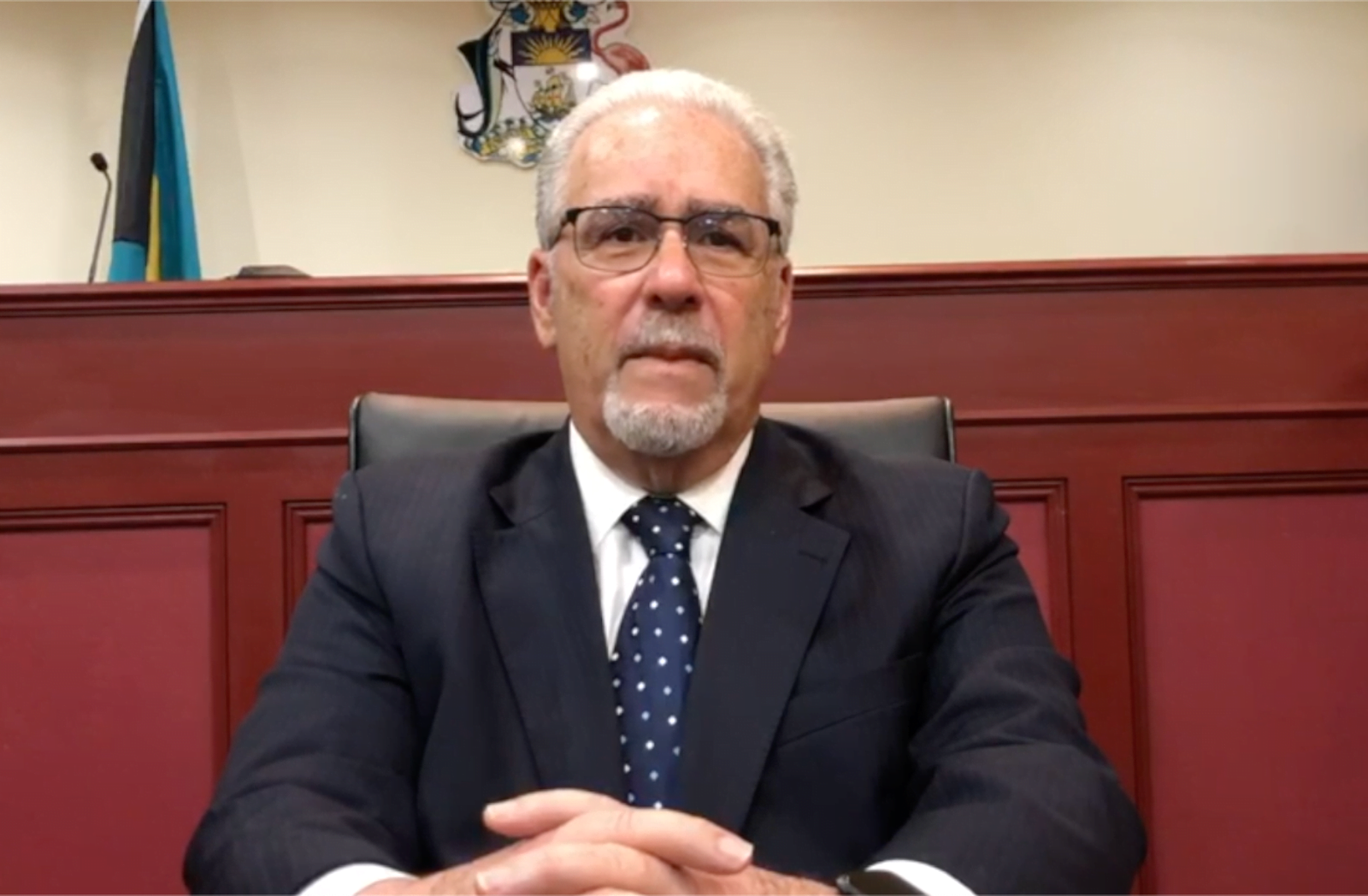NASSAU, BAHAMAS — Chief Justice Sir Brian Moree QC said yesterday that the judiciary must have more control over its administrative, financial, and operational affairs as he urged the government to enact the Court Services Bill.
The Chief Justice, who was addressing the Bahamas Judiciary Virtual Opening of the 2022 legal year, noted that under the constitution the judiciary is a co-equal branch of government.
“The judiciary must not be treated as another government department or agency. It bears reminding the public that it is an independent judiciary which is the ultimate custodian of your rights and liberties,” said Sir Brian.
“If we are to fulfil our vital constitutional role we need adequate financial resources, competent staff, adequate equipment and supplies and suitable physical premises to operate the courts.
“The judiciary needs to have more control over its administrative, financial, and operational matters in to implement the necessary reforms within the court system.”
He continued: “It is for this reason that I am disappointed that the Court Services Bill has not been passed into law. It was tabled in the House of Assembly last year but was not advanced prior to the dissolution of Parliament. I am in communication with the Attorney General on this subject and I am encouraged by his assurance that this matter will receive the urgent attention of this new administration on the subject.
“I strongly urge the government to the Court Services Bill into Parliament expedite is passage and enactment into law. The Bill if passed will be a transformative legislative intervention which would fundamentally change the operation of the courts.”
Sir Brian said that the judiciary stands ready to do its part in improving efficiency and productivity if provided the tools to do so.
The Chief Justice noted that while 2021 was a productive year for the judiciary, however much works remains to be done in 2022. He noted that the case management system is now installed, with the configuration and migration of data to be completed before the end of this month.
The go live dates for the various divisions of the court of will begin in February. Sir Brian noted that 3.2 million pages of court records were digitised and another 4.5 million pages will be digitised between January and July.
Sir Brian also lamented that challenges in the Supreme Court’s criminal division with fixing trial dates within the reasonable time period.
“In the Supreme Court criminal devision we continue to have difficulties with fixing trial dates within reasonable time periods,” he said.
“Lawyers who practice in this area are accustomed to obtaining trial dates which are far into the future based on their calendar. Every case must be considered on its own facts and circumstances but as a general point, the court will not surrender its calendar to the commitments of counsel. It is time we addressed the problem of scheduling conflicts and adjournments.
“Attorneys who are booked for 18-24 months into the future should not assume that this will dictate the pace of the case or the fixing of trial dates. I am aware that constitutional issues are engaged in this discussion but the court is not impotent in the face of counsel who claim to have no availability for two or three years,” said Sir Brian, who noted that he plans to discuss the issue with the relevant stakeholders to come up with a resolution.
The Chief Justice also noted that there remains a “compelling need” for a new Supreme Court complex.






